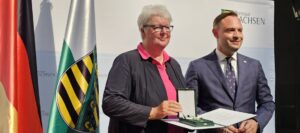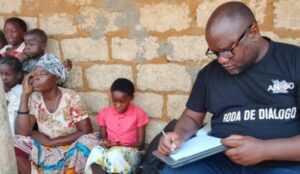By Sr Maria de Fátima Coelho Pires, Region Leader, South Europe Region
Communion and transformation are two elements of the invisible structures we are challenged and called to implement in our lived reality of today.
Conscious that fruitful religious life depends on quality community life and the living out of our vows, we must be creative and take bold steps to ensure that sisters remain linked with a canonical leader in the future – particularly in light of fewer sisters available for leadership given their increasing age and decreasing new vocations.
With mission and the desire to live community life with new dynamism at its core, we have entered into a process of discernment through theological reflection on the new structure for our communities in the South Europe Region. In this process, we have given priority to inclusion and dialogue, aware that everything that is new can cause insecurity, fear, and anxiety. We seek a new form of governance to be put into practice, relying on God’s grace, who, through the Holy Spirit, guides history.
Due to their close proximity, we have two local communities, which include houses from two countries: one from Portugal and Spain and the other from Italy and Malta.
How we live in communion and what facilitates this communion is important, and this is a challenge for the leadership skills of these community leaders. Our Constitutions are very rich and clear in this sense: “Community life is the expression of the mutual love which unites us. Gathered in Christ’s name, we are a community established in faith, living in hope, and striving for perfect charity.” (Const. No. 32)
In light of this, some local canonical communities were created with two to six houses (former communities), with a canonical leader who “leads the community in discerning… seeks to be available and to promote unity and initiative through good communication and mutual trust. She ensures that resources for the integral growth of sisters are available.” (Const. Nº 91). In each house, a link sister remains in close communication with the canonical leader.
We are in the process of implementing this new structure, so everything is new and flexible. Each local community is different and adopts its own dynamics to maintain apostolic life and dynamism throughout the entire community.
There are many differences between the various local communities in the region in terms of geography and proximity. In Portugal and southern Spain, local communities have houses that are closer together, while in Spain and Italy/Malta, the distances are greater and so each community has a different dynamic.
New technologies facilitate these communications, which are necessary to keep the process of accompaniment by canonical leaders alive and for sisters to stay well connected. These new communities are interesting and dynamic! We can say with St. Mary Euphrasia, “If you always love one another, if you always uphold one another, you will be capable of working wonders” (Lecture 68).







